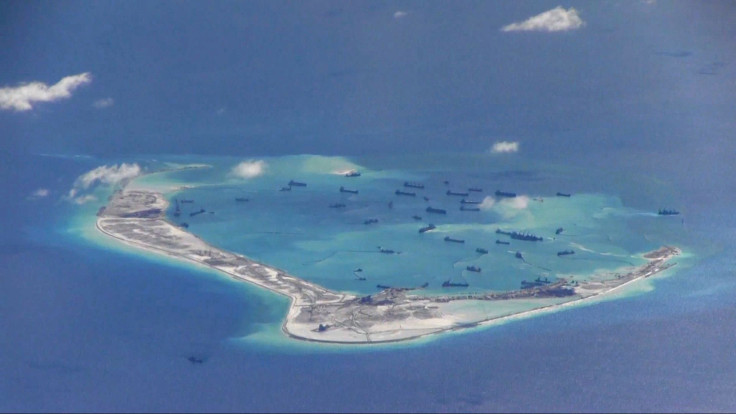What's Happening In South China Sea? Taiwan Increases Patrols, To Conduct Navy-Air Force Training Amid China's Security Threats

China's escalating military activities in the South China Sea have forced Taiwan's navy to step up regular patrols in the disputed waters and conduct joint training with the air force, the island's defense minister said Thursday. Beijing's island building and military prowess has been slammed by several Southeast Asian countries and the West.
"Looking ahead at the transformation of China's strategy and its investment in new weapons equipment, our military will practice new reforms in our training," Feng Shih-kuan told a parliamentary session, according to Reuters. "The navy, during its regular South China Sea patrols, will conduct joint training with the air force in protecting fishermen and supply transports, and in humanitarian rescue drills to expand the combat readiness of our sea and air patrols."
Taiwan is increasingly concerned about threats from China as the latter continues to build structures to strengthen its military in the region and conduct week-long training drills amid the ongoing territorial dispute. China claims most of the South China Sea, through which over $5 trillion of maritime trade passes annually. Brunei, Malaysia, the Philippines and Taiwan also have conflicting claims to the waters.
Feng said Thursday that China's continuous drills involving its navy and air force, particularly in the Pacific Ocean to Taiwan's east, represents "an increase in threat."
"The deployment of this force is done entirely for the security of our country," Feng said, when asked by a lawmaker about the deployment of a surface-to-air anti-missile system, the Patriot Advanced Capability, on Taiwan's eastern coast.
Late last month, reports surfaced that China is close to finishing the construction of structures capable of housing long range surface-to-air missiles in the disputed waters.
The U.S. also deployed an aircraft carrier strike group in the South China Sea last month despite warnings from China’s foreign ministry against challenging Beijing’s sovereignty in the region.
Tensions between the U.S. and China escalated after President Donald Trump accepted a congratulatory phone call from Taiwanese President Tsai Ing-wen, making him the first U.S. president to directly speak to Taiwan in four decades. China has repeatedly blamed the U.S. for heightening tensions in the South China Sea.
© Copyright IBTimes 2024. All rights reserved.





















